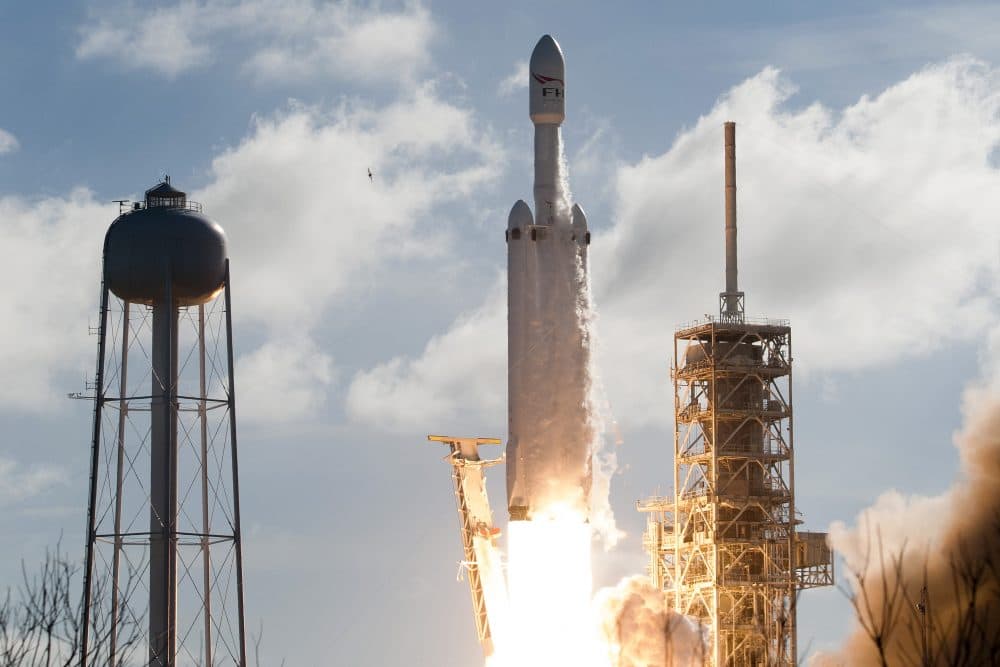Advertisement
Coronavirus Coverage
Obesity Does Not Seem To Raise Risk Of Catching Coronavirus, Boston Researchers Find In SpaceX Study

Obesity is known to raise the risk of complications from COVID-19, but a new study finds that higher weight does not seem to raise the risk of catching the virus in the first place.
The study, led by Boston researchers, also finds no evidence that people with obesity mount a less robust immune response, which suggests they may respond well to coronavirus vaccines.
The new paper, which has not yet been through peer review, followed nearly 5,000 employees of Elon Musk's company, SpaceX, as they were tested repeatedly for coronavirus antibodies and immune function.
"The most important implication was that there was no risk in the susceptibility to infections amongst obese individuals, so no evidence that obese individuals are more likely to get infected," says lead author Dr. Eric Nilles from Brigham and Women’s Hospital and Harvard Medical School.
Nilles says it's reassuring that the study also found no evidence for differing immune responses to the virus, assuaging concerns — at least to some extent — that the prevalence of obesity could hinder the impact of the coming vaccines.
The study did find a weight-related difference in COVID-19 symptoms among the employees who caught the virus: More weight meant a higher likelihood of fever and multiple symptoms.
The coronavirus newsletter Brief19 notes that while the paper still needs peer review, "the work was performed by a large team of well-respected researchers."
The item's author, Dr. Christopher Sampson, adds a dig at billionaire Elon Musk, a co-author on the paper: "The inclusion of SpaceX CEO Elon Musk as one of around thirty co-authors of this manuscript does not appear to have had any detrimental effect on its quality, despite his consistent and well-documented history of spreading misinformation about covid-19 on Twitter and elsewhere." (Musk recently earned the monicker "Space Karen" for complaining about the imperfect accuracy of rapid antigen tests.)
In all, the study found that through the end of July, 7% of the thousands of SpaceX employees who volunteered to participate did test positive for COVID antibodies, with the highest rate at a Texas venue. Only five were hospitalized, and none needed ICU care or died.
Nilles cautions that the study's findings have no bearing on the greater risks that obesity poses for patients with severe COVID, because it included none. He also acknowledges that this is a single study and emphasizes that further research on different populations is important to confirm the generalizability of the study's findings.
So how did a bunch of rocket scientists and their co-workers end up serving as subjects for coronavirus research?
"During pandemic times, strange things happen," says Nilles, who is also director of the program on infectious diseases and epidemics at the Harvard Humanitarian Initiative.
A couple of medical residents at Brigham and Women's Hospital had been doing internships at SpaceX, he says, and made the connection between his work setting up epidemiological studies and their understanding that SpaceX wanted to test its employees for COVID antibodies.
The collaboration began, and the cohort of SpaceX workers will be followed for a year in total. The study is unusual, Nilles says, because it brings together epidemiology — tracking the transmission — and immunology, along with gene-sequencing, infectious disease, and modeling experts.
